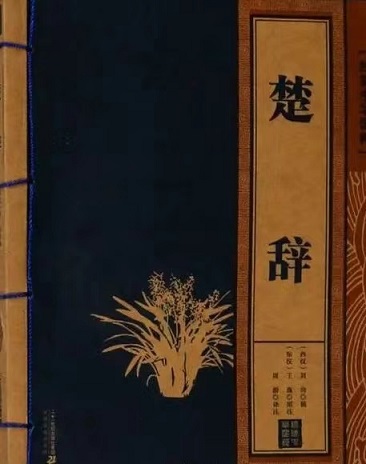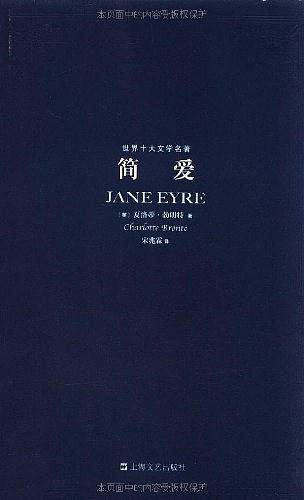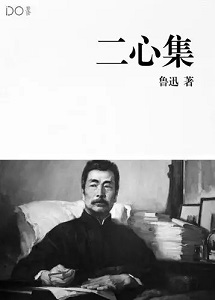So far in this book the Thenardiers have been viewed only in profile; the moment has arrived for making the circuit of this couple, and considering it under all its aspects.
Thenardier had just passed his fiftieth birthday; Madame Thenardier was approaching her forties, which is equivalent to fifty in a woman; so that there existed a balance of age between husband and wife.
Our readers have possibly preserved some recollection of this Thenardier woman, ever since her first appearance,--tall, blond, red, fat, angular, square, enormous, and agile; she belonged, as we have said, to the race of those colossal wild women, who contort themselves at fairs with paving-stones hanging from their hair. She did everything about the house,--made the beds, did the washing, the cooking, and everything else. Cosette was her only servant; a mouse in the service of an elephant. Everything trembled at the sound of her voice,--window panes, furniture, and people. Her big face, dotted with red blotches, presented the appearance of a skimmer. She had a beard. She was an ideal market-porter dressed in woman's clothes. She swore splendidly; she boasted of being able to crack a nut with one blow of her fist. Except for the romances which she had read, and which made the affected lady peep through the ogress at times, in a very queer way, the idea would never have occurred to any one to say of her, "That is a woman." This Thenardier female was like the product of a wench engrafted on a fishwife. When one heard her speak, one said, "That is a gendarme"; when one saw her drink, one said, "That is a carter"; when one saw her handle Cosette, one said, "That is the hangman." One of her teeth projected when her face was in repose.
Thenardier was a small, thin, pale, angular, bony, feeble man, who had a sickly air and who was wonderfully healthy. His cunning began here; he smiled habitually, by way of precaution, and was almost polite to everybody, even to the beggar to whom he refused half a farthing. He had the glance of a pole-cat and the bearing of a man of letters. He greatly resembled the portraits of the Abbe Delille. His coquetry consisted in drinking with the carters. No one had ever succeeded in rendering him drunk. He smoked a big pipe. He wore a blouse, and under his blouse an old black coat. He made pretensions to literature and to materialism. There were certain names which he often pronounced to support whatever things he might be saying,--Voltaire, Raynal, Parny, and, singularly enough, Saint Augustine. He declared that he had "a system." In addition, he was a great swindler. A filousophe [philosophe], a scientific thief. The species does exist. It will be remembered that he pretended to have served in the army; he was in the habit of relating with exuberance, how, being a sergeant in the 6th or the 9th light something or other, at Waterloo, he had alone, and in the presence of a squadron of death-dealing hussars, covered with his body and saved from death, in the midst of the grape-shot, "a general, who had been dangerously wounded." Thence arose for his wall the flaring sign, and for his inn the name which it bore in the neighborhood, of "the cabaret of the Sergeant of Waterloo." He was a liberal, a classic, and a Bonapartist. He had subscribed for the Champ d'Asile. It was said in the village that he had studied for the priesthood.
We believe that he had simply studied in Holland for an inn-keeper. This rascal of composite order was, in all probability, some Fleming from Lille, in Flanders, a Frenchman in Paris, a Belgian at Brussels, being comfortably astride of both frontiers. As for his prowess at Waterloo, the reader is already acquainted with that. It will be perceived that he exaggerated it a trifle. Ebb and flow, wandering, adventure, was the leven of his existence; a tattered conscience entails a fragmentary life, and, apparently at the stormy epoch of June 18, 1815, Thenardier belonged to that variety of marauding sutlers of which we have spoken, beating about the country, selling to some, stealing from others, and travelling like a family man, with wife and children, in a rickety cart, in the rear of troops on the march, with an instinct for always attaching himself to the victorious army. This campaign ended, and having, as he said, "some quibus," he had come to Montfermeil and set up an inn there.
This quibus, composed of purses and watches, of gold rings and silver crosses, gathered in harvest-time in furrows sown with corpses, did not amount to a large total, and did not carry this sutler turned eating-house-keeper very far.
Thenardier had that peculiar rectilinear something about his gestures which, accompanied by an oath, recalls the barracks, and by a sign of the cross, the seminary. He was a fine talker. He allowed it to be thought that he was an educated man. Nevertheless, the schoolmaster had noticed that he pronounced improperly.[12]
[12] Literally "made cuirs"; i. e., pronounced a t or an s at the end of words where the opposite letter should occur, or used either one of them where neither exists.
He composed the travellers' tariff card in a superior manner, but practised eyes sometimes spied out orthographical errors in it. Thenardier was cunning, greedy, slothful, and clever. He did not disdain his servants, which caused his wife to dispense with them. This giantess was jealous. It seemed to her that that thin and yellow little man must be an object coveted by all.
Thenardier, who was, above all, an astute and well-balanced man, was a scamp of a temperate sort. This is the worst species; hypocrisy enters into it.
It is not that Thenardier was not, on occasion, capable of wrath to quite the same degree as his wife; but this was very rare, and at such times, since he was enraged with the human race in general, as he bore within him a deep furnace of hatred. And since he was one of those people who are continually avenging their wrongs, who accuse everything that passes before them of everything which has befallen them, and who are always ready to cast upon the first person who comes to hand, as a legitimate grievance, the sum total of the deceptions, the bankruptcies, and the calamities of their lives,--when all this leaven was stirred up in him and boiled forth from his mouth and eyes, he was terrible. Woe to the person who came under his wrath at such a time!
In addition to his other qualities, Thenardier was attentive and penetrating, silent or talkative, according to circumstances, and always highly intelligent. He had something of the look of sailors, who are accustomed to screw up their eyes to gaze through marine glasses. Thenardier was a statesman.
Every new-comer who entered the tavern said, on catching sight of Madame Thenardier, "There is the master of the house." A mistake. She was not even the mistress. The husband was both master and mistress. She worked; he created. He directed everything by a sort of invisible and constant magnetic action. A word was sufficient for him, sometimes a sign; the mastodon obeyed. Thenardier was a sort of special and sovereign being in Madame Thenardier's eyes, though she did not thoroughly realize it. She was possessed of virtues after her own kind; if she had ever had a disagreement as to any detail with "Monsieur Thenardier,"--which was an inadmissible hypothesis, by the way,--she would not have blamed her husband in public on any subject whatever. She would never have committed "before strangers" that mistake so often committed by women, and which is called in parliamentary language, "exposing the crown." Although their concord had only evil as its result, there was contemplation in Madame Thenardier's submission to her husband. That mountain of noise and of flesh moved under the little finger of that frail despot. Viewed on its dwarfed and grotesque side, this was that grand and universal thing, the adoration of mind by matter; for certain ugly features have a cause in the very depths of eternal beauty. There was an unknown quantity about Thenardier; hence the absolute empire of the man over that woman. At certain moments she beheld him like a lighted candle; at others she felt him like a claw.
This woman was a formidable creature who loved no one except her children, and who did not fear any one except her husband. She was a mother because she was mammiferous. But her maternity stopped short with her daughters, and, as we shall see, did not extend to boys. The man had but one thought,--how to enrich himself.
He did not succeed in this. A theatre worthy of this great talent was lacking. Thenardier was ruining himself at Montfermeil, if ruin is possible to zero; in Switzerland or in the Pyrenees this penniless scamp would have become a millionaire; but an inn-keeper must browse where fate has hitched him.
It will be understood that the word inn-keeper is here employed in a restricted sense, and does not extend to an entire class.
In this same year, 1823, Thenardier was burdened with about fifteen hundred francs' worth of petty debts, and this rendered him anxious.
Whatever may have been the obstinate injustice of destiny in this case, Thenardier was one of those men who understand best, with the most profundity and in the most modern fashion, that thing which is a virtue among barbarous peoples and an object of merchandise among civilized peoples,--hospitality. Besides, he was an admirable poacher, and quoted for his skill in shooting. He had a certain cold and tranquil laugh, which was particularly dangerous.
His theories as a landlord sometimes burst forth in lightning flashes. He had professional aphorisms, which he inserted into his wife's mind. "The duty of the inn-keeper," he said to her one day, violently, and in a low voice, "is to sell to the first comer, stews, repose, light, fire, dirty sheets, a servant, lice, and a smile; to stop passers-by, to empty small purses, and to honestly lighten heavy ones; to shelter travelling families respectfully: to shave the man, to pluck the woman, to pick the child clean; to quote the window open, the window shut, the chimney-corner, the arm-chair, the chair, the ottoman, the stool, the feather-bed, the mattress and the truss of straw; to know how much the shadow uses up the mirror, and to put a price on it; and, by five hundred thousand devils, to make the traveller pay for everything, even for the flies which his dog eats!"
This man and this woman were ruse and rage wedded--a hideous and terrible team.
While the husband pondered and combined, Madame Thenardier thought not of absent creditors, took no heed of yesterday nor of to-morrow, and lived in a fit of anger, all in a minute.
Such were these two beings. Cosette was between them, subjected to their double pressure, like a creature who is at the same time being ground up in a mill and pulled to pieces with pincers. The man and the woman each had a different method: Cosette was overwhelmed with blows--this was the woman's; she went barefooted in winter-- that was the man's doing.
Cosette ran up stairs and down, washed, swept, rubbed, dusted, ran, fluttered about, panted, moved heavy articles, and weak as she was, did the coarse work. There was no mercy for her; a fierce mistress and venomous master. The Thenardier hostelry was like a spider's web, in which Cosette had been caught, and where she lay trembling. The ideal of oppression was realized by this sinister household. It was something like the fly serving the spiders.
The poor child passively held her peace.
What takes place within these souls when they have but just quitted God, find themselves thus, at the very dawn of life, very small and in the midst of men all naked!
在这部书里我们还只见过一下德纳第夫妇的侧影,现在应当在那两位伉俪的前后左右,从各方面去看个清楚。
德纳第刚过五十岁,德纳第大娘将近四十,那也就是妇女的五十,因此他们夫妻俩,从年龄上说是平衡的。
读者和德纳第大娘有过初次的会见,现在应当还有一些印象,记得她是个高大身材、淡黄头发、红皮肤、肥胖、多肉、阔肩巨腰,魁梧奇伟、行动矫健的妇人,我们曾经说过,市集上常有那种巨无霸似的蛮婆,头发上挂着几块铺路的石块,在人前仰身摆弄,德纳第大娘便是属于那一类型的。她在家里照顾一切,整理床榻,打扫房屋,洗衣,煮饭,作威作福,横冲直撞。她唯一的仆人就是珂赛特,一只伺候大象的小鼠。只要地开口,窗玻璃、家具、人,一切都会震动。她的那张宽脸生满了雀斑,看去就象个漏勺。她有胡子。简直是理想中的那种扮成姑娘的彪形大汉。她骂人的本领特别高强,她夸口自己能一拳打碎一个核桃。假使她没有读过那些小说,假使那母夜叉不曾从那些奇书里学到一些娇声媚态,谁也不会想到她是个妇人。德纳第大娘是那种多情女子和泼辣婆的混合体。人们听到她说话,就会说“这是个丘八”;看到她喝酒,就会说“这是个赶骡的车夫”;见到她摆布珂赛特,就会说“这是个刽子手”。她在休息时,嘴角还露出一颗獠牙。
德纳第却是个矮小、瘦弱、青脸、见骨露棱、貌似多病而完全健康的人,他那种表里不一的性格从这里已开始表露。他为了防备他人而脸上经常带笑,几乎对所有的人,即使对一个向他讨一文钱而不得的乞丐,也都客客气气。他目光柔滑如黄鼠,面貌温雅如文人。正象德利尔①神甫的那副神气。他的殷勤,表现在喜欢陪着车夫们喝酒。谁也不曾灌醉过他。他经常抽根大烟斗。穿件粗布罩衫,罩衫下是一身旧黑衣裤。他自以为爱好文学和唯物主义。有些人的名字是他时常挂在嘴边、作为他东拉西扯时的引证的,伏尔泰、雷纳尔②、帕尔尼③,而且,说也奇怪,还有圣奥古斯丁④。他自称有“一套”理论,其实完全是骗人的东西,只能说他是个贼学家。哲和贼的微妙区别那是可以理解的。我们记得他妄称自己有过汗马功劳,他常说得天花乱坠,告诉别人说他在滑铁卢战争时是某个第六或第九轻骑队的中士,他单独抵抗一中队杀人不眨眼的骑兵,用自己的身体遮护过一位“受了重伤的将军”,并且把他从枪林弹雨中救了出来。因此,在他的门墙上才会有那么一块炮火连天的招牌,地方上的人这才称他那客店为“滑铁卢中士客寓”。他是自由主义者、古典主义者、波拿巴的崇拜者。他曾经申请参加美洲殖民组织⑤。村里的人说他受过传教的教育。
①德利尔(JacquesDelille,1738?813),法国诗人,法兰西学院院士,维吉尔、密尔顿诗歌的法译者。
②雷纳尔(Raynal,1713?796),法国历史学家和哲学家。
③帕尔尼(Parny,1753?814),法国诗人。
④圣奥古斯丁(SaintAugustin,354?30),基督教神学家、哲学家、拉丁教父的主要代表,生于北非,395年任北非希波主教。
⑤拿破仑失败后,拉勒芒将军(Lallemand)曾企图把一些为波旁王室所不容的人组织起来到美洲去殖民,但未能成功。
我们认为他只在荷兰受过当客店老板的教育。这一情况复杂的败类,恬不知耻地经常跨在国境上,随时窥测形势,在佛兰德以自称为来自里尔的佛兰德人,在巴黎便自称为法国人,在布鲁塞尔便自称为比利时人。他在滑铁卢的英勇是我们熟悉的。我们知道,他多少夸大了些。风波的一起一伏,人事的曲折变化都成了他谋生的机会,由于心中暖昧,因而身世飘零,这是很可能的,在一八一五年六月十八那个风狂雨疾的日子里,德纳第正是我们先头说过的那种以随军小贩为名、偷盗为实的货色,一路窥伺敌人,和这些人做点买卖,从那些人偷点东西,夫妻孩子一家人全坐上破车,跟着上前线的队伍沿途滚进,凭着自己的本能,始终尾随着打胜仗的军队。那次战役后,用他自己的话说,他有些“油水”,便来到孟费郿开客店。
那种油水,无非是些钱包和表、金戒指和银十字架,是他在秋收季节从布满尸体的田地里获得的,数字不大,对这位以随军小贩身分发家的客店老板来说并没有多大帮助。
在德纳第的动作中有种说不出的直线条味道,他咒骂时的语调更会使人想起兵营,画十字时的神气也会使人想起教士培养所来。他能说会道。他乐于让人尊他为博学之士。可是一个小学教师也会发现他常“露马脚”。他在给顾客开帐单时也要舞文弄墨,可是有知识的人有时会在那上面发现别字。德纳第为人阴险,贪口福,游手好闲,长于应付。对家里女用人他不难说话,因而他的太太干脆不雇女用人。那泼辣婆娘醋劲大。她觉得她那枯黄干瘪的矮男人可以成为一切女人艳羡的对象。
德纳第的特点足精细阴险,四平八稳,确是个稳扎稳打的恶棍。那种人最恶劣,因为他貌善而心诈。
不要以为德纳第不会象他女人那样发脾气,不过那是很少见的事,可是万一他发作,他是狠到极点的,因为他仇视全人类,因为他心里燃烧着满满一炉怨恨的火,因为他和某些人一样,对人永远采取报复行动,把自己所遭遇的一切,例如合法的要求,生活中的一切失意、破产、受苦受窘的事,都归咎到自己所接触的人身上,并且无时无刻不准备从任何一个落到他手中的人身上取得赔偿,因为那股怨气一直在他的心里膨胀,在他的嘴里眼里焚烧。谁撞在他的怒火头上就得遭殃。
德纳第也有他的长处,例如很谨慎,眼力犀利,根据情况多说或不说话,并且总是保持高度警惕。他有海员对着望远镜眨眼的那种味道。德纳第是个政客。
初次走进客店的人见到德纳第大娘总说:“这一定是这家人的主人了。”没有那回事。她连主妇也不是。主人和主妇,全是她丈夫。她执行,他命令。他有一种连续不断的无形的磁石力量在操纵指使。他说一个字就已发生威力,有时甚至只须丢个眼色,那头大象便惟命是从了。德纳第在他婆娘心中是个独特的主宰,她自己也不甚了然究竟原因何在。她自有一套做人的道德标准,她从来不为一件小事而和“德纳第先生”发生争执,甚至连那样的假设也不会有的,无论发生什么事,她从不当着众人使她丈夫丢面子。她从不犯妇女常犯的那种“出家丑”的错误,也就是用议会的用语来说,所谓揭王冠的那种错误。虽然他们和睦相处的后果只不过是为非作歹,可是德纳第大娘对她丈夫的恭顺却带有虔诚景仰的味儿。那座哼哈咆哮的肉山竟会在一个羸弱专制魔王的小手指下移动,就从那卑微粗鄙的方面看,那也是天地间的一种壮观:是物质对精神的崇拜,因为某些丑恶现象在永恒之美的深度中也还有存在的理由。德纳第有些使人看不透的地方,因而在他们夫妇间产生了那种绝对的主奴关系。某些时候,她把他看作一盏明灯,某些时候,她又觉得他是一只魔掌。
这个妇人是丑恶的创造物,她只爱她的孩子,也只怕她的丈夫。她作了母亲,因为她是哺乳动物。况且她的母爱还只局限在她的两个女儿身上,从不涉及男孩,我们以后还会谈到这种情形。至于他,那汉子,只有一种愿望:发财。
他在这方面毫无成就。蛟龙不得云雨。德纳第在孟费郿已到囊空如洗的地步,假使囊空确能如洗的话,要是那光棍到了瑞士或比利牛斯,他也许早已成为百万富翁。但是命运既已把那个客店老板安顿在那里,他就得在那里啃草根。这里所说的“客店老板”,当然是就狭义而言,并不遍指那整个阶层。
就在一八二三那一年,德纳第负了一千五百法郎左右的紧急债务,使他日夜不安。
无论命运对德纳第是怎样一贯不公平,他本人却极为清醒,能以最透辟的眼光和最现代化的观点去理解那个在野蛮人中称为美德而在文明人中成为交易的问题:待客问题。此外,他还是一个出色的违禁猎人,他的枪法也受到了人们的称羡。他有时会露出一种泰然自若的冷笑,那是特别危险的。
他那些做客店老板的理论,有时会象闪电似的从他头脑里进射出来。他常把职业方面的一些秘诀灌输到他女人的脑子里。有一天,他咬牙切齿地向她低声说:“一个客店老板的任务便是把肉渣、光、火、脏被单、女用人、跳蚤、笑脸卖给任何一个客人;拉客,挤空小钱包,斯斯文文地压缩大钱包,恭恭敬敬地伺候出门的一家人,剥男人的皮,拔女人的毛,挖孩子的肉;所有开着的窗、关着的窗、壁炉角落、围椅、靠椅、圆凳、矮凳、鸭绒被、棉絮褥子、草荐都得定出价钱;应当知道镜子没有灯光照着就容易坏,也得收取费用,应当想出五十万个鬼主意,要来往的客人付尽一切,连他们的狗吃掉的苍蝇也得付钱!”
这两个男女是一对一唱一随的尖刁鬼和女瘟神,是一对丑毛驴和劣马。
丈夫在挖空心思想方设法时,德纳第大娘,她,却不去想那些还没有登门的债主,她对已往和未来都无忧无虑,只知道放开胸怀过着目前的日子。
那两口子的情形便是如此。珂赛特活在他俩中间,受着两方面的压力,就象一头小动物同时受到磨盘的挤压和铁钳的撕裂。那汉子和那婆子各有一套不同的作风,珂赛特遍体鳞伤,那是从婆子那里得来的,她赤脚过冬,那是从汉子那里得来的。
珂赛特上楼,下楼,洗,刷,擦,扫,跑,忙,喘,搬重东西,一个骨瘦如柴的孩子得做各种笨重的工作。绝对得不到一点怜惜心,却有个蛮不讲理的老板娘,有个毒如蛇蝎的老板。德纳第家的客店就好象是个蜘蛛网,珂赛特被缚在那上面发抖。高度的迫害在那缺德的人家实现了。她仿佛是一只为蜘蛛服务的苍蝇。
那可怜的孩子,反应迟钝,一声也不响。
那些刚离开上帝的灵魂趁着晨曦来到人间,当它们看见自己是那么幼弱,那么赤身露体时,它们会想些什么呢?







